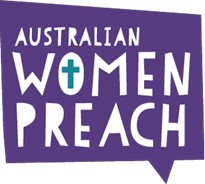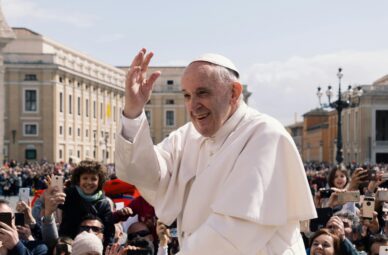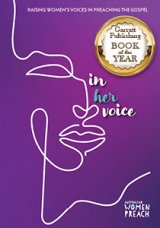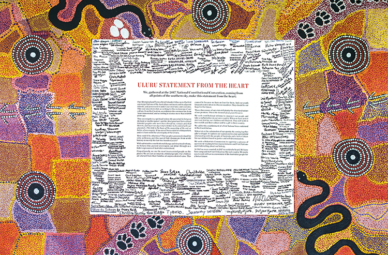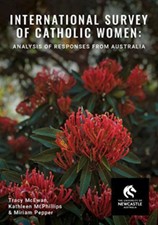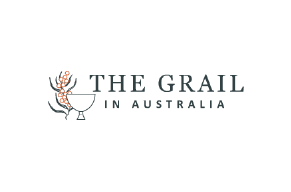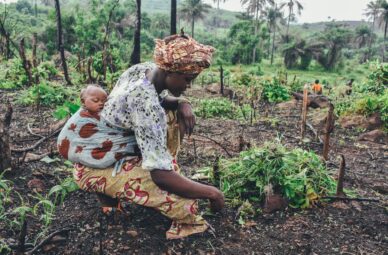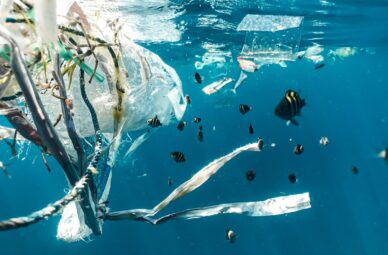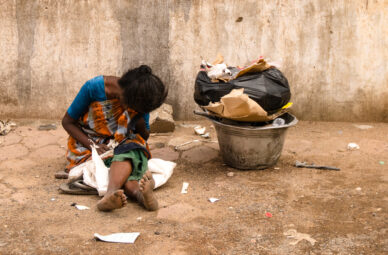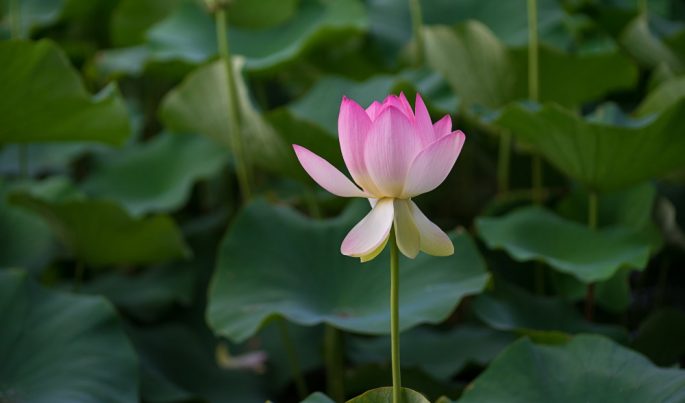
The Context for Ecological Theology and Spirituality
April 19, 2017Welcome to the first in a five-part series written by Patricia Gemmell on the topic of Eco-Spirituality.
Part 1 The Context for Ecological Theology and Spirituality
Part 2 Reclaiming our heritage
Part 3 God the Trinity
Part 4 Women's voices
Part 5 Eco-Spirituality
Part 1
ENCYCLICAL LETTER
LAUDATO SI’
OF THE HOLY FATHER
FRANCIS
ON CARE FOR OUR COMMON HOME
1. “LAUDATO SI’, mi’ Signore” – “Praise be to you, my Lord”. In the words of this beautiful canticle, Saint Francis of Assisi reminds us that our common home is like a sister with whom we share our life and a beautiful mother who opens her arms to embrace us. “Praise be to you, my Lord, through our Sister, Mother Earth, who sustains and governs us, and who produces various fruit with coloured flowers and herbs.”
2. This sister now cries out to us because of the harm we have inflicted on her by our irresponsible use and abuse of the goods with which God has endowed her. We have come to see ourselves as her lords and masters, entitled to plunder her at will. The violence present in our hearts, wounded by sin, is also reflected in the symptoms of sickness evident in the soil, in the water, in the air and in all forms of life. This is why the earth herself, burdened and laid waste, is among the most abandoned and maltreated of our poor; she “groans in travail” (Rom 8:22). We have forgotten that we ourselves are dust of the earth (cf. Gen 2:7); our very bodies are made up of her elements, we breathe her air and we receive life and refreshment from her waters.
Introduction
Spirituality is a characteristic of the human being; it is the meaning and purpose we attribute to our lives; it encompasses our relationship to self and others, to the world and to the Transcendent. I like this particular description by the American theologian, Sandra Schneiders: “it is an ongoing and coherent approach to life as a consciously pursued and ongoing enterprise”(Schneiders 2003, 167).
Of course, there are many, many different ways we can speak about it. The Australian theologian, David Ranson, says this: “Spirituality is a certain attentiveness to life – an attentiveness which contains within itself a certain desire, a certain hopefulness, a certain anticipation. Spirituality is attention combined with intention (Simone Weil). Attention animated by desire, or attention become intention, awakens within us the awareness of a deepened relationship with ourselves and with others, with the world and with some greater sense of meaning” (Ranson 2002, 17).
I think that if you are here today reading this, you already have a lived experience of what spirituality is. You know how restless is the human heart and how much we seek to be transformed. Christian spirituality has always been about the theory and practice of the Christian life, but both theory and practice constantly undergo change, not only in observable history but in the hidden transformations of our own lives. Our beliefs change and with them our spiritual practices. We are always searching. There is always something new to crack open our hearts a little wider.
I would like to explore with you ecological spirituality (or eco-spirituality as it is often called), in the hopes that you might find yourselves changed in the process. As with any spirituality, it finds expression in the totality of one’s lifestyle. Broadly speaking, it is based on a belief in the sacredness of the entire created universe, in the Divine Mystery being not only the source of all creation but also the sustaining power within it, and in the belief of the interconnectedness of all life. It is about living a life that seeks to care for the earth, that engages with the environmental crises of our time and place, and that longs for and works for justice for all creatures. And it is marked by attitudes of reverence, wonder and gratitude. Clearly, it is a spirituality that finds a home in all the religions of the world. And of course, there exist non-religious eco-spiritualities.
What I want to look at is eco-spirituality within the Christian tradition. There is a vast and growing field of ecological theology that seeks to marry the Christian story with the story of the universe told by science. I would like to discuss some of the significant themes that are emerging out of this theology and how they are changing the Christian theological landscape. This theology is unashamedly written with a very clear agenda: the survival of the human species on a flourishing earth. It calls for radical action, but it also recognises that such action is only possible if there is, first of all, a radical transformation of our hearts and minds. And they unfailingly tell us that such a transformation is only possible through some kind of contemplative practice.
In other words, it is our ongoing spiritual transformation that is the sine qua non of the radical changes in lifestyle that the earth requires of us if we are to continue to flourish as a species.
What is the foundational context of ecological theology and spirituality?
We know that all theology is contextual. Once you start reading some of the literature (and there is plenty to choose from), you begin to see that there are two fundamental stories that underpin the whole enterprise. The first has been called the story of wonder: this is the “new story” of the cosmos as told to us by science, the story of how the universe came into being and how it evolved from the first moment of what is usually called the Big Bang and how it is still evolving to this very day. This is the story that underpins what is sometimes called creation theology, the story that provides a new revelation of God and is seriously studied and contemplated as such by theologians who try to articulate new insights into who or what God is and how God operates.
This story, the Universe story, has the capacity to make us feel profound wonder and joy. The other story is filled with horror and despair. It is the one we see when we look at the world we live in, when we make an audit of what we have done to the earth, particularly in the last two to three hundred years, when scientists talk about fragile and failing biosystems or extinction of species on an unprecedented scale, when we see how the poor and vulnerable of this earth are suffering from the way we have mistreated our earth-mother and our fellow human beings. This is the story of humanity’s thoughtless exploitation of creation for individual gain.
Eco-theology holds these two stories in a creative tension, providing grounds for hope in the face of overwhelming devastation. But the hope lies with us, human beings, and theologians are not always optimistic that we will see the light and change ourselves. Some openly countenance the possibility that we will become extinct as a species.
I would like now to examine these two stories in a bit more detail as they are so important to our understanding of any kind of ecological theology or spirituality. I am going to start with the horror story of the ecological crisis we find ourselves in today. You will find this reiterated in all the literature; indeed, it is the pivotal motivation for eco-theology, the “signs of the times” that have brought this particular contextual theology into being. One of the most moving accounts of this story is to be found in Chapter 9 of Ask the Beasts by American theologian Elizabeth Johnson. With powerful empathy, she evokes its tragic dimensions and concludes that “the ongoing destruction of life on Earth by human action, intended or not, has the character of deep moral failure” (Johnson 2014, 255).
Pope Francis starts his first encyclical, Laudato Si’, with this story. In Chapter One, entitled “What is Happening to Our Common Home,” he states:
“Our goal is not to amass information or to satisfy curiosity, but rather to become painfully aware, to dare to turn what is happening to the world into our own personal suffering and thus to discover what each of us can do about it” (19).
You will note that Francis’ starting point is what is happening to our common home and his end point or goal is that we do something about it. But look at how we are to get there. We are to dare to make the suffering of the world our own suffering. Francis asks of us what all the eco-theologians ask for: a radical shift in consciousness that will change the world. How we actually, practically, achieve that shift in consciousness is what eco-spirituality is all about.
What does Francis mention in Chapter One? He speaks of pollution, waste and the throwaway culture, climate change, the issue of water, the loss of biodiversity, decline in the quality of human life and the breakdown of society, and, finally, global inequality. It is a tragic account of human failure. There are many more environmental issues he could have addressed, and no doubt each and every one of us holds particular ones to heart. I would like to point your attention to just one – the issue of loss of biodiversity.
I have chosen this because I think that it is often considered of lesser priority than those issues that most obviously impact on human lifestyles, such as climate change and global warming. And yet, Francis has spoken at length on this issue. Perhaps that is not surprising when you consider that it is anticipated that between one-quarter and one-third of the world’s animals and plants may be extinct within the next 100 years.
I would just like to highlight a few parts for you now:
Each year sees the disappearance of thousands of plant and animal species which we will never know, which our children will never see because they have been lost forever. The great majority become extinct for reasons related to human activity. Because of us, thousands of species will no longer give glory to God by their very existence, nor convey their message to us. We have no such right (33).
But a sober look at our world shows that the degree of human intervention, often in the service of business interests and consumerism, is actually making our earth less rich and beautiful, ever more limited and grey, even as technological advances and consumer goods continue to abound limitlessly. We seem to think that we can substitute an irreplaceable and irretrievable beauty with something which we have created ourselves (34).
Because all creatures are connected, each must be cherished with love and respect, for all of us as living creatures are dependent on one another (42).
Francis finishes Chapter One with this sobering assessment:
But we need only take a frank look at the facts to see that our common home is falling into serious disrepair. Hope would have us recognise that there is always a way out, that we can always redirect our steps, that we can always do something to solve our problems. Still, we can see signs that things are now reaching a breaking point, due to the rapid pace of change and degradation; these are evident in large-scale natural disasters as well as social and even financial crises, for the world’s problems cannot be analysed or explained in isolation. There are regions now at high risk and, aside from all doomsday predictions, the present world system is certainly unsustainable from a number of points of view, for we have stopped thinking about the goals of human-activity. “If we scan the regions of our planet, we immediately see that humanity has disappointed God’s expectations” (61).
Thankfully, there is another story to be told. In 1992, Brian Swimme, a cosmologist, and Thomas Berry, a cultural historian and theologian, co-wrote a ground-breaking book. It was called The Universe Story: From the Primordial Flaring Forth to the Ecozoic Era--A Celebration of the Unfolding of the Cosmos. This book tells the new creation story. The evidence for it is empirical and scientific, and while much of this knowledge was readily available, what Swimme and Berry did was, first of all, to tell it as a story and then to contextualise the scientific story in a meaningful framework. In so doing they produced some significant interpretive insights.
Most significant of these, to my mind, was that this new creation story does not belong to any specific religious tradition but to the whole of humankind; as such it has the potential to unite us by making us see that as creatures we share a common origin and a common destiny. Their great hope is that humankind will appropriate this new story as the new “creation myth” and so find ways to work together to bring in a new age. They call this age the Ecozoic Age; it’s also often called the Ecological Age and it is imagined as one where we will find a new way of being human in which together we care for the earth and all her life systems and live in harmony with her.
The trouble is, we think we know the evolutionary story of the cosmos. But I believe that Genesis is still far more firmly planted in our Western psyche. If the cosmic story is to have any traction at all, then it also needs to find root in our collective psyche. We need to hear it over and over again; we need to imagine it, reflect upon it, stand in awe before its magnificence and mystery. We have not had our fill of this story.
This is what Swimme and Berry had to say about the emergence of human life:
"…there was never a time in 4 billion years of Earth’s life with as many species as there were when the humans first arose in Earth’s community…Perhaps the only word to describe the world that gave birth to the human form of life is paradise" (Swimme and Berry,140).
Diarmuid O’Murchu describes the story thus:
"It is a long, complex narrative full of surprises, occasional failures, and several paradoxes, baffling, mysterious, and mind-blowing. And we have not reached the end yet – if indeed there ever will be an end. Other creatures, perhaps unimaginable to our minds today, will evolve in due course. There are no limits to the power of creative Spirit" (O’Murchu 2002, 63).
The good news is that this story is readily accessible to anyone who wants to find it. Many documentary films and tv series on the evolution of the cosmos and the wonder of the universe have been made in recent years and they have all been immensely popular. People want to hear this story. This is a very hopeful sign because this story has the power in our day to reawaken in us our sense of wonder, to tell us who we are in the great scheme of the universe and to point the way to a new way of being in the world. We need to hear it imaginatively retold over and over again until it sinks into our collective psyche.
The Universe Story can be told as a series of physical processes, which, of course, it is on one level. But it is much more than that. Swimme and Berry wrote their book to demonstrate that “the evolutionary process is from the beginning a spiritual as well as a physical process” (Berry 1990, 87). They contend that if life on earth was able to evolve into a species that had psychic and spiritual attributes, then the universe must have had a psychic/spiritual dimension from the very beginning.
In The Dream of the Earth, written a few years earlier, Thomas Berry wrote this:
"Empirical inquiry into the universe reveals that from its beginning in the galactic system to its earthly expression in human consciousness the universe carries within itself a psychic-spiritual as well as a physical material dimension. Otherwise, human consciousness emerges out of nowhere. The human is seen as an addendum or an intrusion and thus finds no real place in the story of the universe. In reality, the human activates the most profound dimension of the universe itself, its capacity to reflect on and celebrate itself in conscious self-awareness" (Berry 1990, 131-2).
Diarmuid O’Murchu, another well-known ecological theologian, expresses it this way: the universe is alive. He writes about it as a blessing and extravagant gift, he sees it as an alive universe that requires a relational response, not an exploitative one. His writing is lyrical and passionate as he tries to make us see the world in a different light. This is the task of all those who are writing about ecology today.
Berry’s ultimate analysis of the Universe Story is this:
Although as yet unrealized, this scientific account of the universe is the greatest religious, moral, and spiritual event that has taken place in these centuries. It is the supreme humanistic and spiritual as well as the supreme scientific event. The sublime mission of modern education is to reveal the true importance of the story for the total range of human and earthly affairs (Berry 1990, 98).
All Christian eco-theologians would agree with this view today. But as I said before, this story belongs to us all. Susan Murphy is an Australian Buddhist and Zen teacher who has written a book called Minding the Earth, Mending the World. For her, the Universe story has the power to “ignite the imaginative capacity in human beings to take in what is being made painfully clear by the earth right now and to respond” (Murphy 2014, 7).
The old stories are no longer adequate to help us – in fact, they have contributed to the devastation we now face – and Murphy is passionate about handing on this new story as a way of changing hearts and minds. She is clear-eyed about what it takes: conscious intention and effort, which for her translates into the practice of full awareness that is called meditation. What Murphy hoped to achieve in her book was to help us recover our entrancement with the natural world, help us “re-establish ourselves psychically within the reality of the unfolding cosmos,” and to become aware of the connectedness of all life (Murphy 2014, 128).
I highly recommend Berry’s Dream of the Earth. It is a book that was prophetic for its time (written in 1988) and it has certainly changed many of my perceptions. Below are some paragraphs from Chapter Five, “The Ecological Age,” that I have chosen for you to reflect on.
Thomas Berry, The Dream of the Earth: Chapter Five, “The Ecological Age”
Our present awakening from this enchantment with technology has been particularly painful. We have altered the earth and human life in many irrevocable ways. Some of these have been creative and helpful. Most have been destructive beyond imagination.
Presently we are entering another historical period, one that might be designated as the ecological age. I use the term ecological in its primary meaning as the relation of an organism to its environment, but also as an indication of the interdependence of all the living and nonliving systems of the earth. This vision of a planet integral with itself throughout its spatial extent and its evolutionary sequence is of primary importance if we are to have the psychic power to undergo the psychic and social transformations that are being demanded of us. These transformations require the assistance of the entire planet, not merely the forces available to the human. Otherwise, we mistake the order of magnitude in this challenge…It is a radical change in our mode of consciousness. Our challenge is to create a new language, even a new sense of what it is to be human. It is to transcend not only national limitations but even our species isolation, to enter into the larger community of living species. This brings about a completely new sense of reality and value. (41-42)
The ecological age fosters the deep awareness of the sacred presence within each reality of the universe. There is an awe and reverence due to the stars in the heavens, the sun, and all heavenly bodies; to the seas and the continents; to all living forms of trees and flowers; to the myriad expressions of life in the sea; to the animals of the forests and the birds of the air. To wantonly destroy a living species is to silence forever a divine voice. Our primary need for the various lifeforms of the planet is a psychic, rather than a physical, need. (46)
At present, however, we are in that phase of transition that must be described as the groping phase. We are like a musician who faintly hears a melody deep within the mind, but not clearly enough to play it through. This is the inner agony we experience, especially when we consider that the music we are creating is the very reality of the universe. (47)
What is clear is that the earth is mandating that the human community assume a responsibility never assigned to any previous generation. (47)
What we have looked at so far is our current world reality calling us to change. And when I say “us” I don’t mean Christians in particular, I mean every human being on the planet. That is why Francis addresses his encyclical to the whole human family.
“We require a new and universal solidarity,” he says. Let’s briefly consider some secular responses to this current world reality. There is despair, there is indifference, there is denial, there is scepticism, there are lethargy and paralysis, there is blind trust that technology will deliver us. There are individual and local communal efforts at mitigating the damage we have done and continue to do to the earth: think of recycling, solar panels, renewable energy, public transport systems, carbon taxes and emissions schemes and so on. There are lots of small, practically invisible groups of concerned citizens trying to make a difference. There are global initiatives on some environmental issues, climate change in particular, though these have often proved disappointing. There are prophetic non-religious voices.
I would like to mention one such prophetic voice. Naomi Klein, a secular Canadian Jewish feminist, also a journalist, political analyst and social activist, came to Australia in September 2015 for the Festival of Dangerous Ideas. She recently wrote a book called This Changes Everything: Capitalism vs the Climate.
I heard her speaking on the radio in Sydney and she said, “We find ourselves facing only radical options…There are no non-radical options on the table” (ABC radio program, Late Night Live, Sept 2, 2015). What she meant is that if we do nothing about climate change, our lives will be radically altered by climate change anyway. But if we face the problem and tackle it, it will also require of us radical changes in our lifestyle. She is a powerful and passionate advocate for a different future, and Pope Francis invited her to the Vatican to speak at a press conference on Laudato Si’ and to participate in a two-day conference called “People and Planet First: the Imperative to Change Course.” This was at the start of July 2015. Such interesting alliances are bound to continue.
Ecological theologians write often of the urgency of the moment we are living in. There is no time to lose, they say. This is what Mark Carney, the Governor of the Bank of England, had to say on 29th September 2015, in a speech he gave to Lloyd’s of London on climate change and financial stability: “While there is still time to act, the window of opportunity is finite and shrinking.”
That the Pope, the leader of the Catholic Church, has written an encyclical addressed to the whole world on the urgency of ecological conversion is nothing less than amazing. It truly is a game changer in the world sphere. Up until that moment, there had certainly been prophetic Christian voices raised up in defence of the earth and the ecological movement as a whole was, I believe, quietly gathering momentum. However, what Pope Francis has done is to bring ecology from the margins into the mainstream. Catholics, at least, can no longer say that this is not a grave moral issue. It is, in fact, being presented as the most pressing moral issue of our times. Why does it seem sometimes as if nobody is listening?
In 1967 there appeared an article in an American magazine called Science, entitled “The Historical Roots of our Ecologic Crisis.” The writer was Lynn White, Jr., a historian, and his article rocked the Christian theological world. In his relatively brief analysis, he laid the blame for the ecological crisis on Western Christianity, declaring that it bore “a huge burden of guilt” for its anthropocentrism and its arrogant indifference towards nature.
It is certainly true that Christianity has much to answer for. However, it is also true that there have always been strands of Christian thought, theology and practice that have stood out against the dominant model. (If you interested in reading more on this particular topic, Elizabeth Johnson has an excellent article entitled “Losing and Finding Creation in the Christian Tradition” in Christianity and Ecology, ed. Dieter Hessel and Rosemary Radford Ruether, 2000.)
Lynn White’s critique of Christianity obviously disturbed a lot of theologians and made them critically re-examine their theology. But they weren’t just interested in defending Christian theology as it stood. They began to look for new ways of articulating it in such a way that it would give us new understandings of God, of creation, of what it means to be human, and of Jesus Christ as the Incarnate Son of God. And running through all this work that candidly sought to change our worldview and to bring us into communion with the natural world, there is a common thread of recognition that this knowledge is not enough. It has to become a lived knowledge, a living faith. The future of the earth depends on it.
I will be looking at some of these theological voices and some of the important themes that we find in eco-theology throughout this series of articles.
Some of the important voices in this field are Thomas Berry, Brian Swimme, Denis Edwards, Elizabeth Johnson, Sean McDonagh, Diarmuid O’Murchu, Sallie McFague and Ilia Delio.
I would like you to reflect on yourselves, on your own relationship with the two stories that I have put before you.
- How much are you aware of the state of the planet?
- Do you need to find out more?
- How much do you care?
- Could the Universe Story speak to you more deeply?
- In what ways could you engage with the Universe Story so as to let it ignite your imagination and change your consciousness?
- Do you believe that we have a pressing moral responsibility to care for the earth right now, or do you see things quite differently?
References
Berry, Thomas 1990, The Dream of the Earth, Sierra Club Books, San Francisco.
Francis 2015, Laudato Si.
Johnson, Elizabeth A. 2014, Ask the Beasts: Darwin and the God of Love, Bloomsbury, London.
Murphy, Susan 2014, Minding the Earth, Mending the World: Zen and the Art of Planetary Crisis, Counterpoint, Berkeley.
O’Murchu, Diarmuid 2002, Evolutionary Faith: Rediscovering God in Our Great Story, Orbis Books, Maryknoll, New York.
Ranson, David 2002, Across the Great Divide: Bridging Spirituality and Religion Today, St Pauls, Strathfield.
Schneiders, Sandra M. 2003, “Religion vs Spirituality: A Contemporary Conundrum,” Spiritus: A Journal of Christian Spirituality 3.
Swimme, Brian & Berry, Thomas 1994, The Universe Story: From the Primordial Flaring Forth to the Ecozoic Era--A Celebration of the Unfolding of the Cosmos, HarperSanFrancisco, New York.

Patricia is a wife, mother of four, and a retired teacher of French, Latin and Italian. She graduated with a Masters in Theology at Newcastle University in 2014. She is a member of the Sydney Grail group and currently serves on their national leadership team.







